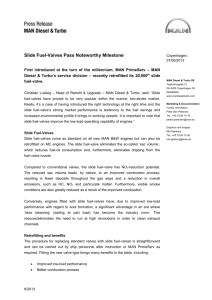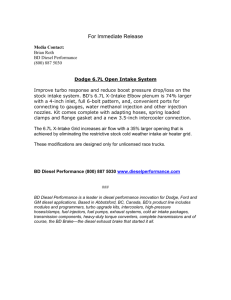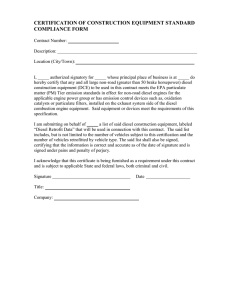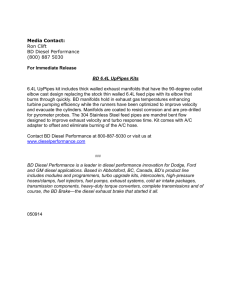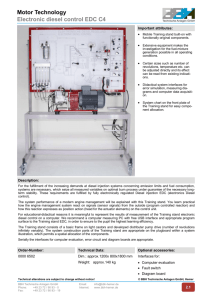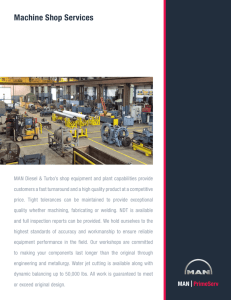The world`s first ocean-going diesel-powered ship
advertisement
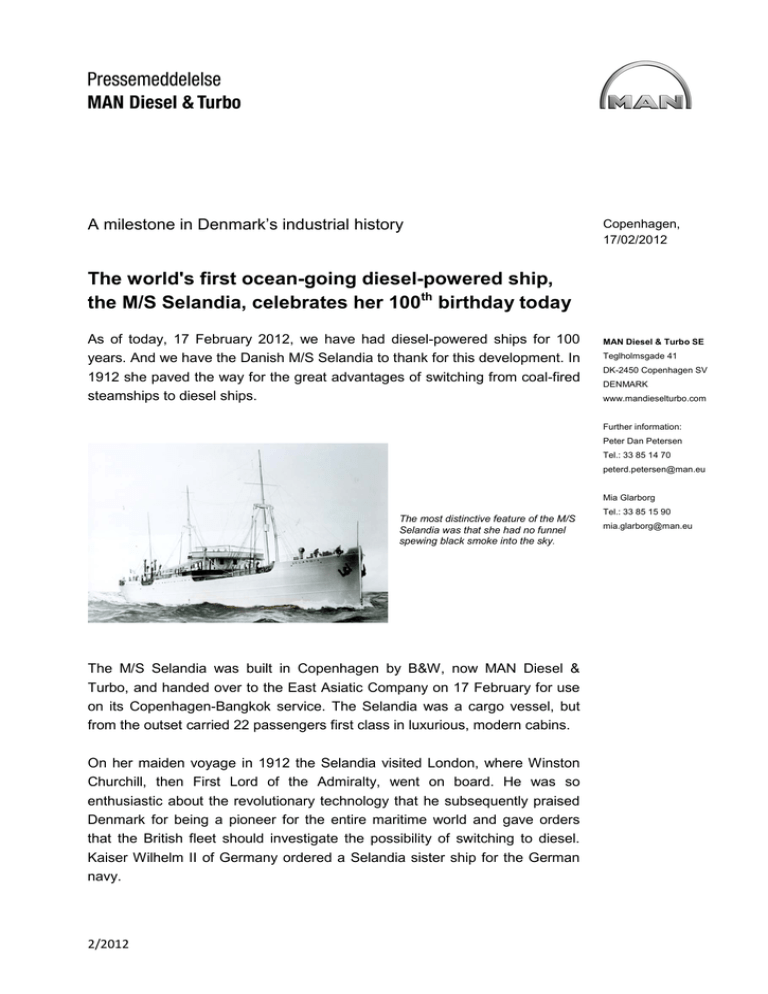
A milestone in Denmark’s industrial history Copenhagen, 17/02/2012 The world's first ocean-going diesel-powered ship, the M/S Selandia, celebrates her 100th birthday today As of today, 17 February 2012, we have had diesel-powered ships for 100 years. And we have the Danish M/S Selandia to thank for this development. In 1912 she paved the way for the great advantages of switching from coal-fired steamships to diesel ships. MAN Diesel & Turbo SE Teglholmsgade 41 DK-2450 Copenhagen SV DENMARK www.mandieselturbo.com Further information: Peter Dan Petersen Tel.: 33 85 14 70 peterd.petersen@man.eu Mia Glarborg The most distinctive feature of the M/S Selandia was that she had no funnel spewing black smoke into the sky. The M/S Selandia was built in Copenhagen by B&W, now MAN Diesel & Turbo, and handed over to the East Asiatic Company on 17 February for use on its Copenhagen-Bangkok service. The Selandia was a cargo vessel, but from the outset carried 22 passengers first class in luxurious, modern cabins. On her maiden voyage in 1912 the Selandia visited London, where Winston Churchill, then First Lord of the Admiralty, went on board. He was so enthusiastic about the revolutionary technology that he subsequently praised Denmark for being a pioneer for the entire maritime world and gave orders that the British fleet should investigate the possibility of switching to diesel. Kaiser Wilhelm II of Germany ordered a Selandia sister ship for the German navy. 2/2012 Tel.: 33 85 15 90 mia.glarborg@man.eu Press Release Page 2 / 2 The steam engines that had propelled all large ships until 1912 were not very efficient. Diesel engines were two or three times more efficient and cleaner, as well as providing better working conditions for the engine-room crew, greater cargo capacity and a much longer range. And they totally out-competed steam engines. The diesel engine was invented by Rudolf Diesel in a form that could not be used on board ships. This only became practically possible at B&W under the management of Ivar Knudsen, B&W’s farsighted technical director. The actual 100th anniversary of the M/S Selandia being handed over to the East Asiatic Company is being marked at 2 pm today with a reception for the press and invited guests at DieselHouse in Copenhagen. There will also be a preview of the unique special exhibition on the M/S Selandia, which opens to the public on Sunday 19 February. The docudrama "The Ship that Changed the World – M/S Selandia" is being premiered too. The film has been produced by Chroma Film with support from MAN Diesel & Turbo. Winston Churchill, who was First Lord of the Admiralty at the time, went on board the M/S Selandia and subsequently praised Denmark for being a pioneer for the entire maritime world. Further information: www.selandia100.dk 2/2012 Press Release Page 3 / 3 About MAN Diesel & Turbo MAN Diesel & Turbo SE, based in Augsburg, Germany, is the world’s leading provider of large-bore diesel engines and turbomachinery for marine and stationary applications. It designs two-stroke and four-stroke engines that are manufactured both by the company and by its licensees. The engines have power outputs ranging from 450 kW to 87 MW. MAN Diesel & Turbo also designs and manufactures gas turbines of up to 50 MW, steam turbines of up to 150 MW and compressors with volume flows of up to 1.5 million m³/h and pressures of up to 1,000 bar. The product range is rounded off by turbochargers, CP propellers, gas engines and chemical reactors. MAN Diesel & Turbo’s range of goods includes complete marine propulsion systems, turbomachinery units for the oil & gas as well as the process industries and turnkey power plants. Customers receive worldwide after-sales services marketed under the MAN PrimeServ brand. The company employs around 12,500 staff at more than 100 international sites, primarily in Germany, Denmark, France, Switzerland, the Czech Republic, Italy, India and China. MAN Diesel & Turbo is a company of the Power Engineering business area of MAN SE, which is listed on the DAX share index of the 30 leading companies in Germany. Ref.: 6510-0268 2/2012
